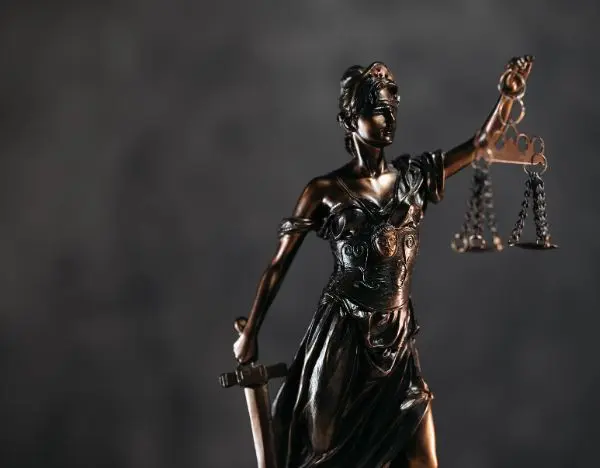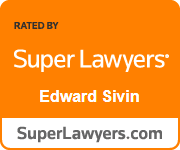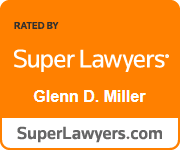New York Civil Rights & Criminal Defense Lawyers
Wrongful Conviction Lawyer
A wrongful conviction is a devastating miscarriage of justice that can have profound and lasting impacts on the lives of those affected. At Sivin, Miller & Roche LLP, our dedicated wrongful conviction lawyers in NYC are committed to fighting for the rights of individuals who have been wrongfully convicted. We understand the immense challenges faced by those seeking to clear their names, and we are here to provide the legal experience and support needed to pursue justice and freedom. For immediate assistance, contact us today,
What is a Wrongful Conviction?

A wrongful conviction occurs when an innocent person is found guilty and sentenced for a crime they did not commit. This grave miscarriage of justice can happen due to various factors, leading to devastating consequences for the wrongfully convicted individual. At Sivin, Miller & Roche LLP, we are dedicated to fighting against wrongful convictions and seeking justice for those who have been unjustly imprisoned.
Wrongful Incarceration Facts
Wrongful incarceration is a significant issue within the criminal justice system, affecting thousands of innocent individuals each year. Understanding the scope and impact of wrongful convictions is crucial in addressing and preventing these injustices. Here are some important facts about wrongful incarceration:
Prevalence of Wrongful Convictions
- Estimated Numbers: Studies suggest that between 2% to 10% of all prisoners in the United States are wrongfully convicted. Given the current prison population, this means tens of thousands of innocent individuals are behind bars.
- Exonerations: Since 1989, more than 2,700 individuals have been exonerated in the U.S. after being wrongfully convicted. This number is steadily increasing as more wrongful convictions are uncovered.
The Impact on Wrongfully Incarcerated Individuals
- Length of Incarceration: On average, wrongfully convicted individuals spend over 14 years in prison before being exonerated. Some have spent more than 30 years behind bars.
- Emotional and Psychological Trauma: The experience of being wrongfully convicted and imprisoned causes severe emotional and psychological trauma, including depression, anxiety, and PTSD.
- Reputational Damage: A wrongful conviction can irreparably damage an individual’s reputation, affecting their personal relationships and professional opportunities long after exoneration.
- Economic Hardship: Wrongfully incarcerated individuals often face significant financial difficulties, including loss of income, legal fees, and challenges in securing employment post-exoneration.
Systemic Issues
- Racial Disparities: Studies have shown that racial minorities, particularly African Americans, are disproportionately affected by wrongful convictions. They are more likely to be wrongfully convicted and less likely to be exonerated.
- Need for Reform: Addressing wrongful convictions requires systemic reforms, including better legal representation for defendants, improved forensic science standards, greater accountability for law enforcement and prosecutors, and the implementation of best practices for eyewitness identification.
How a Wrongful Conviction Lawyer Can Help
At Sivin, Miller & Roche LLP, we understand the profound injustice of a wrongful conviction and the devastating impact it can have on your life. Our dedicated wrongful conviction lawyers in NYC are committed to fighting for the rights of those who have been wrongfully convicted. Here’s how we can help:
Comprehensive Case Review
The first step in addressing a wrongful conviction is a thorough evaluation of your case. Our wrongful conviction attorneys will:
- Examine Evidence: Review all existing evidence, trial records, and legal documents to identify errors, misconduct, or new evidence that could prove your innocence.
- Identify Misconduct: Look for instances of police or prosecutorial misconduct, ineffective legal representation, and other factors that may have led to your wrongful conviction.
Gathering New Evidence
To build a strong case for overturning your wrongful conviction, we will:
- Conduct Investigations: Perform independent investigations to uncover new evidence that can support your claim of innocence.
- DNA Testing: Utilize advanced DNA testing techniques to uncover biological evidence that can exonerate you.
- Witness Interviews: Re-interview witnesses and identify new ones who can provide crucial testimony.
- Expert Analysis: Consult forensic experts to challenge faulty evidence used in your conviction.
Legal Representation
Our wrongful conviction attorneys provide aggressive representation in court, working tirelessly to challenge your wrongful conviction:
- File Appeals: Submit appeals to higher courts to review and overturn your conviction based on new evidence or legal errors.
- Post-Conviction Motions: File motions for post-conviction relief, such as motions for a new trial or to vacate your conviction.
- Clemency and Pardons: Advocate for clemency or a pardon from the governor or other appropriate authorities.
Seeking Compensation
If your wrongful conviction is overturned, you may be entitled to compensation for the years lost and the suffering endured. We will pursue claims for:
- Financial Compensation: Lost wages, legal fees, and other financial losses.
- Emotional Distress: Damages for the psychological trauma and emotional suffering caused by wrongful imprisonment.
- Reputational Damage: Compensation for the harm to your personal and professional reputation.
Advocacy and Support
Beyond legal representation, we provide ongoing support and advocacy for our clients:
- Reintegration Assistance: Helping clients reintegrate into society after years of wrongful imprisonment.
- Support Services: Connecting clients with counseling and support services to address emotional and psychological needs.
- Public Awareness: Raising awareness about wrongful convictions and advocating for systemic reforms to prevent future injustices.
Why Choose Sivin, Miller & Roche LLP?
Choosing the right legal representation is crucial in wrongful conviction cases. At Sivin, Miller & Roche LLP, we offer:
- Proven Track Record: Our civil rights attorneys have successfully handled complex wrongful conviction cases and secured justice for our clients.
- Comprehensive Support: We provide compassionate and personalized support throughout the legal process.
- Experience: Our team brings extensive knowledge and experience in criminal defense and civil rights law, ensuring top-tier legal representation.
Causes of Wrongful Convictions
Several factors can contribute to wrongful convictions, including:
Mistaken Identity
Eyewitness misidentification is one of the leading causes of wrongful convictions. Witnesses may mistakenly identify an innocent person as the perpetrator due to factors like stress, poor lighting, or suggestive identification procedures.
False Confessions
False confessions can occur when individuals are coerced, intimidated, or manipulated into admitting to a crime they did not commit. Vulnerable individuals, such as juveniles or those with mental health issues, are particularly at risk and become falsely imprisoned.
Police and Prosecutorial Misconduct
Law enforcement officers and prosecutors may engage in unethical practices that lead to wrongful convictions, such as:
- Withholding Exculpatory Evidence: Failing to disclose evidence that could prove the defendant’s innocence.
- Fabricating Evidence: Creating false evidence or tampering with existing evidence to secure a conviction.
- Coercive Interrogation Tactics: Using aggressive or deceitful interrogation techniques to elicit false confessions.
Ineffective Legal Representation
Inadequate defense counsel can result in wrongful convictions. Factors contributing to ineffective representation include:
- Lack of Experience: Defense attorneys who lack experience or expertise in criminal law.
- Insufficient Resources: Public defenders or court-appointed attorneys may have limited resources and heavy caseloads, preventing them from mounting a robust defense.
- Negligence or Incompetence: Failing to investigate the case thoroughly, call critical witnesses, or challenge flawed evidence.
Faulty Forensic Evidence
Forensic evidence can play a crucial role in criminal cases, but errors or misinterpretations can lead to wrongful convictions. This includes:
- Unreliable Techniques: Using forensic methods that lack scientific validity or have high error rates.
- Human Error: Mistakes made by forensic analysts in handling, testing, or interpreting evidence.
Jailhouse Informants
Testimony from jailhouse informants can be unreliable, as these individuals may provide false information in exchange for leniency or other benefits. Their motivations can compromise the integrity of their testimony.
Systemic Bias
Racial, socioeconomic, and other biases can influence various aspects of the criminal justice process, leading to wrongful convictions. This includes biased policing practices, discriminatory jury selection, and prejudiced treatment by judges and prosecutors.
The Impact of Wrongful Convictions
A wrongful conviction is a profound injustice that can have devastating and far-reaching consequences on the lives of those affected. The impact extends beyond the individual who has been wrongfully convicted, affecting their families, communities, and society at large. Here are some of the key areas where wrongful convictions have a significant impact:
Loss of Freedom
- Incarceration: Wrongfully convicted individuals can spend years, sometimes even decades, in prison for crimes they did not commit. During this time, they are deprived of their liberty and subjected to the harsh realities of prison life.
- Loss of Time: The time lost during the false imprisonment is irreplaceable. Important life events and opportunities, such as education, career advancement, and personal milestones, are missed.
Emotional and Psychological Trauma
- Stress and Anxiety: The process of being wrongfully accused, tried, and convicted is incredibly stressful. The uncertainty and fear associated with the criminal justice process can lead to severe anxiety.
- Depression: The hopelessness and despair of being unjustly imprisoned can result in chronic depression and other mental health issues.
- Post-Traumatic Stress Disorder (PTSD): The trauma of wrongful conviction and incarceration can cause PTSD, with symptoms such as flashbacks, nightmares, and severe anxiety.
Reputational Damage
- Stigma: A wrongful conviction can tarnish an individual’s reputation, leading to social ostracism and discrimination. Even after exoneration, the stigma of having been convicted of a crime can persist.
- Professional Harm: The conviction record can severely impact professional opportunities. Many wrongfully convicted individuals struggle to find employment due to the stigma and gaps in their work history.
Financial Hardship
- Legal Fees: The cost of defending against wrongful charges can be exorbitant, depleting personal savings and causing financial strain for families.
- Lost Wages: Incarceration often results in the loss of employment and income, creating economic instability for the individual and their family.
- Future Earning Potential: The disruption to education and career development can have long-term effects on earning potential, making it difficult to achieve financial stability even after release.
Strain on Personal Relationships
- Family Impact: Wrongful convictions place immense strain on family relationships. Families may struggle with the emotional and financial burden of supporting an incarcerated loved one.
- Loss of Parental Rights: Incarcerated parents may lose custody of their children, leading to lasting emotional and psychological impacts on both the parents and the children.
- Marital Strain: The stress and separation caused by wrongful imprisonment can lead to the breakdown of marriages and partnerships.
Health Consequences
- Physical Health: Incarceration can lead to deteriorating physical health due to inadequate medical care, poor nutrition, and the stress of prison life.
- Mental Health: The psychological effects of wrongful conviction, including anxiety, depression, and PTSD, can have long-term health consequences that require ongoing treatment and support.
Impact on Society
- Erosion of Trust: Wrongful convictions undermine public trust in the criminal justice system. When the system fails to protect the innocent, it raises questions about its fairness and reliability.
- Resource Misallocation: Resources spent on wrongfully convicting and incarcerating innocent individuals could be better used to prevent and solve actual crimes.
- True Perpetrators: When an innocent person is wrongfully convicted, the true perpetrator remains free, posing a continued threat to society.
Monetary Compensation You May Be Entitled To Due To a Wrongful Conviction
A wrongful conviction can have devastating consequences on your life, and you are entitled to seek compensation for the suffering and losses you have endured through a civil rights lawsuit. Here are the types of compensation you may be entitled to:
Financial Compensation
- Lost Wages: Compensation for the income you lost while incarcerated and future earnings you may have missed out on due to the wrongful conviction.
- Legal Fees: Reimbursement for legal defense costs during your wrongful conviction and for the expenses incurred in fighting to overturn your conviction.
Pain and Suffering
- Emotional Distress: Financial compensation for the mental anguish, stress, and emotional trauma caused by wrongful imprisonment. This includes conditions such as depression, anxiety, and PTSD.
- Loss of Enjoyment of Life: Damages for the inability to participate in and enjoy the normal activities and pleasures of life during the time you were wrongfully incarcerated.
Physical Injuries
- Medical Expenses: Reimbursement for medical costs related to any physical injuries or health issues sustained during incarceration. This includes immediate medical care and ongoing treatment for conditions that developed or worsened in prison.
- Future Medical Costs: Compensation for anticipated future medical expenses related to injuries or health conditions resulting from your wrongful imprisonment.
Reputational Damage
- Damage to Reputation: Compensation for the harm done to your personal and professional reputation, which can affect your ability to find employment, maintain relationships, and participate in community activities.
- Loss of Professional Opportunities: Damages for lost career opportunities and the negative impact on your professional life due to the wrongful conviction.
Punitive Damages
In some cases, you may be entitled to punitive damages. These are awarded to punish the parties responsible for the wrongful conviction and to deter similar conduct in the future. Punitive damages hold law enforcement officers, prosecutors, and other responsible parties accountable for their misconduct.
Loss of Consortium
- Family Relationships: Compensation for the impact on your family relationships, including loss of companionship, support, and marital strain caused by your wrongful incarceration.
Housing and Relocation Costs
- Reintegration Costs: Assistance with the costs associated with reintegrating into society, including finding housing and securing employment.
- Relocation Expenses: Compensation for relocation costs if necessary for your safety, privacy, or well-being after exoneration.
Take Action Now – Seek Justice for Wrongful Incarceration
If you or a loved one has been wrongfully convicted, don’t wait to fight for your freedom and rights. Contact Sivin, Miller & Roche LLP today to schedule a free consultation with our experienced wrongful conviction lawyers in NYC. Let us help you secure the justice and compensation you deserve.
Wrongful Conviction Lawyer FAQs
How common are wrongful convictions?
Studies suggest that between 2% to 10% of all prisoners in the United States are wrongfully convicted. This translates to tens of thousands of innocent individuals being incarcerated.
What are the main causes of wrongful convictions?
Common causes include:
- Eyewitness Misidentification: Mistaken identification by witnesses.
- False Confessions: Coerced or manipulated confessions.
- Police and Prosecutorial Misconduct: Unethical practices such as withholding evidence.
- Ineffective Legal Representation: Poor defense due to lack of resources or diligence.
- Faulty Forensic Evidence: Misuse or misinterpretation of forensic methods.
- Jailhouse Informants: Unreliable testimony from incentivized informants.
How can a wrongful conviction lawyer help me?
A wrongful conviction lawyer can:
- Review Your Case: Thoroughly examine evidence and trial records.
- Gather New Evidence: Conduct investigations and employ advanced forensic techniques.
- Provide Legal Representation: File appeals and post-conviction motions.
- Seek Compensation: Pursue financial and emotional damages for the harm suffered.
What types of compensation can I receive for a wrongful conviction?
You may be entitled to:
- Lost Wages: Compensation for income lost during incarceration.
- Emotional Distress: Damages for psychological trauma.
- Medical Expenses: Reimbursement for physical and mental health treatments.
- Reputational Damage: Compensation for harm to your personal and professional reputation.
- Punitive Damages: Damages to punish and deter misconduct by officials.
How long do I have to file a wrongful conviction claim?
The time frame for filing a wrongful conviction claim varies by state and specific circumstances. You typically have three years from dismissal to file a civil rights claim in New York. Contacting a civil rights lawyer promptly is crucial to ensure all deadlines are met.
What should I do if I believe I have been wrongfully convicted?
If you believe you have been wrongfully convicted, you should:
- Contact a civil rights Lawyer: Seek immediate legal assistance from an experienced wrongful conviction lawyer.
- Document Everything: Keep detailed records of your case, including trial documents and new evidence.
- Seek New Evidence: Work with your wrongful conviction lawyer to uncover any new evidence proving your innocence.
Can family members take legal action if their loved one was wrongfully convicted?
Yes, family members can often assist in filing civil lawsuits on behalf of an incarcerated loved one, especially if the wrongfully convicted individual is unable to do so themselves. Consulting with a wrongful conviction lawyer can help determine the best course of action.
What is the process for overturning a wrongful conviction?
The process typically involves:
- Filing Appeals: Submitting appeals to higher courts for review.
- Post-Conviction Motions: Filing motions for a new trial or to vacate the conviction based on new evidence or legal errors.
- Clemency and Pardons: Seeking clemency or a pardon from the governor or other appropriate authorities.
Tell Us About Your Case
Fields marked with an * are required
"*" indicates required fields



